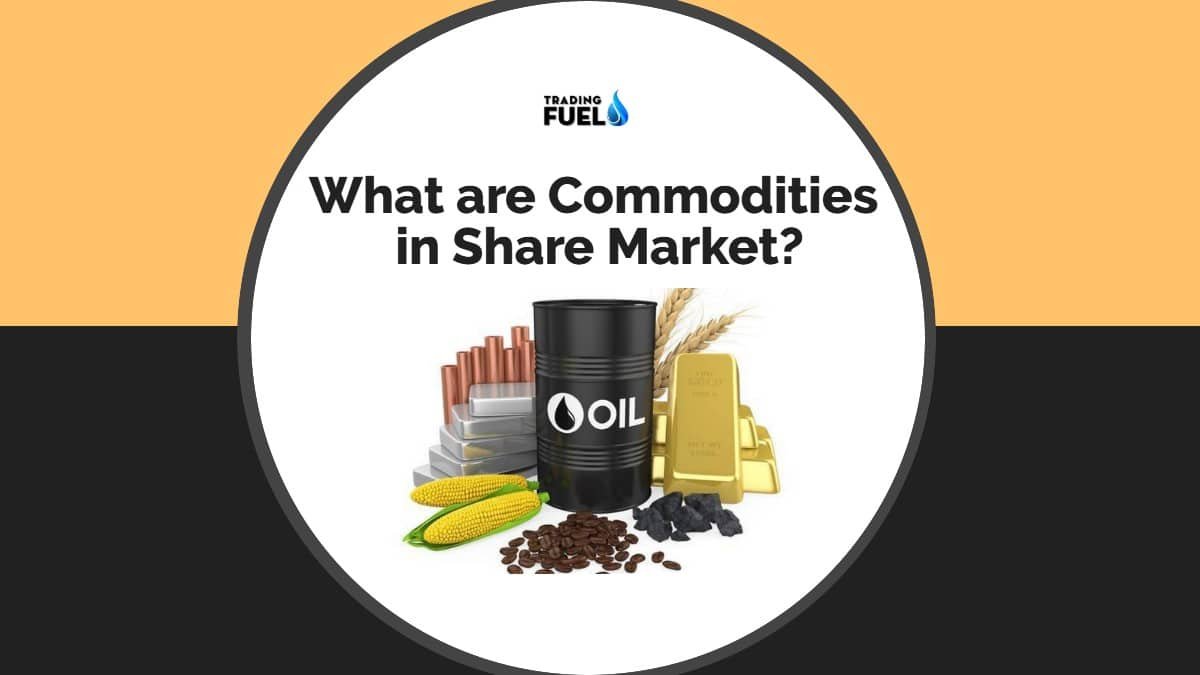What is Commodity?
What are Commodities in Share Market?: A commodity is a group of assets or goods that are essential in every day’s life, such as energy, food or metals. A commodity is an alternate and exchangeable by its nature and can be categorized as every kind of movable good that can be bought and sold. A commodity market is a physical or virtual place for buying, selling and trading raw or primary products.
Commodity trading in India has started a long time back and it was even there before in many countries. Due to many reforms and rules and regulations of the foreign ruling and the natural calamities, these were the major reasons for reducing commodity trading. There are many restrictions in other forms of share or stock market also and commodity trading has regained its importance.
Where to invest in Commodities?
Six Major Commodity Market Exchanges in India
- Multi Commodity Exchange (MCX)
- National Multi Commodity Exchange (NMCE)
- National Commodity and Derivatives Exchange (NCDEX)
- The Universal Commodity Exchange (UCX)
- Indian Commodity Exchange (ICEX)
- Ace Derivatives Exchange (ACE)
National Multi-Commodity Exchange (NMCE) has been merged with the Indian Commodity Exchange (ICE) in 2017. ACE Derivatives and commodities (ACE) is currently owned by Kotak Mahindra Group by acquiring 51% shares. Universal Commodity Exchange (UCE) has been shut down in the year 2014. By the time there is 5 exchange that is currently working for commodities.
In 2015, the regulatory body of the commodity trading – Forward Market Commission (FMC) merged with the Securities and Exchange Board of India (SEBI). Commodity trading in these exchanges requires standard agreements as per the instructions so that the trades can be executed.
Commodities are further classified into:
- Energy – Crude Oil, Natural Gas, Gasoline, Heating oil etc
- Food – Silver, Gold, Platinum, copper etc
- Livestock – Eggs, Meat, Pork, Cattle etc
- Agriculture – Corn, Beans, Rice, Wheat etc
Know About: NSE India
How to invest in Commodities?
To invest in Commodities you need to invest it through a futures contract, which is an agreement for buying and selling a specific quantity of a commodity at a pre-determined price at a future time. Futures are available on every category of commodity. Traders use these contracts as the prevention against the risks that are associated with the price of the futures that are included in trade good or raw material. Trading in Commodities comes with a high level of risk for the beginner or amateur traders or investors.
Advantages of Futures Market
- Future markets are very liquid
- If you trade properly in futures you can get huge profits
- Futures markets are highly leveraged investments
- You can do long or short futures easily as when the target is set
- You have affordable minimum deposit account and you can have control on the full-size contracts
Disadvantages of Futures Market
- Futures markets are volatile
- In this market, gains and losses are lensed by leverage
- Direct investment in the markets are of high-risk
- The unpredictable movement of trade even before you close your positions
In the commodity market, there are almost 100 of the commodities that are currently trading. From these more than 50 of the commodities are actively traded.
What is Exchange Traded Funds and Exchange Traded Notes?
Traders or investors can participate in commodity price momentum. Trading in commodities without any direct investment can be done in futures through Exchange Traded Funds (ETF) and Exchange Traded Notes (ETN).
Using futures contracts, a particular commodity or group of commodities makes an index. The price of these indexes is usually tracked by the commodities ETF’s. ETN’s are dedicated when the fluctuations of the price or commodity index are supported by the issuer. ETN’s are unsecured debts and both ETF’s and ETN’s do not have any special brokerage account to invest.
What are Mutual Funds and Index Funds in Commodity Trading?
It is quite not possible for direct investment of mutual funds within the trade goods mercantilism. Rather, there’s an investment in stocks of the businesses concerned in commodity-related industries like Energy, Food process, or metals and mining.
Investing in stocks of such firms involve high risk, specifically company-related risks. The investment in a very little range of trade goods index mutual funds in future contracts provides direct exposure to trade goods costs. Even though the management fee is slightly high and there’s no honest play within the stocks, there are bound blessings of finance in mutual funds in trade commodity, as well as diversification of the investments, liquidity, and correct cash management.
About Us
Here in this blog, after you read it completely you will get the basics about the commodities and commodity market trading. The Commodity market is very volatile and is very liquid in nature. Trading Fuel is sole purposely built for spreading education and information on the various topics in the stock market. For any further help or doubts, you can easily contact us through mails.

